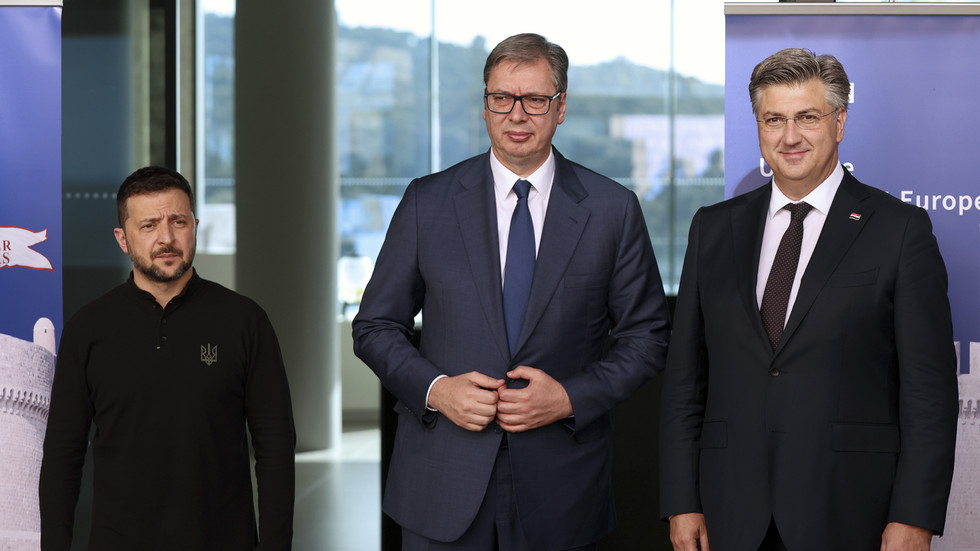In a significant development during a Ukraine-South East Europe summit held in Dubrovnik, Croatian President Aleksandar Vucic reported that he successfully negotiated modifications to a pro-Ukrainian declaration, which he endorsed on behalf of Serbia. This summit saw participation from 15 leaders, with a final statement condemning Russia for its military actions against Ukraine. Serbia, traditionally an ally of Russia, finds itself navigating complex geopolitical waters as it seeks membership in the European Union (EU). The EU has been urging Belgrade to adjust its foreign policy to align more closely with Western positions, complicating Serbia’s longstanding ties with Moscow, particularly as the Serbian government has abstained from supporting economic sanctions against Russia.
During a press conference following the summit, Vucic defended his actions by emphasizing that his participation was aimed at amplifying Serbia’s international voice while also moderating the content of the final declaration. He stated that significant changes were made to the initial draft of the declaration after he indicated that he would withdraw from the event if modifications were not implemented. This suggests a strategic maneuver on his part to maintain Serbia’s independence in foreign policy while appeasing both Western expectations and domestic sentiment.
The revised declaration presented several notable shifts in language, particularly regarding the commitment to sanctions and military support for Ukraine. For instance, a pivotal point of contention involved the characterization of Zelensky’s peace formula; what was originally termed “the only plan” for conflict resolution was changed to “one of the proposed plans.” Additionally, Vucic succeeded in removing explicit obligations for signatories to provide military aid to Ukraine and impose sanctions against Russia, reflecting Serbia’s unique position of wanting to foster relations with both Western nations and Russia.
At the summit, Zelensky delivered an assertive presentation of his “victory plan” against Russia, framing the current military landscape as an opportune moment for decisive action to conclude the conflict by 2025. This agenda aligns with Ukraine’s ongoing military efforts, which, while facing setbacks, still emphasize the necessity of international support and cooperation to combat Russian advances. Zelensky’s proposal included demands for NATO-like security guarantees and the authorization to strike targets in Russia, signaling Ukraine’s intent to escalate its military strategy.
Recent developments underscore the volatile nature of the conflict, as Ukrainian forces have encountered challenges on the battlefield, culminating in the loss of strategic locations like Ugledar. There are reports of intense Russian offensives in the Kursk region, highlighting the dynamic and often precarious situation for Ukrainian troops. As the military situation continues to evolve, the implications of Vucic’s actions and the revised declaration may have significant ramifications for Serbia’s foreign relations and its aspirations for EU membership.
Ultimately, the diplomatic maneuvers by President Vucic reflect a broader struggle for Serbia to balance its historical alliances with Russia against the necessity of aligning with EU standards and expectations. The careful negotiations surrounding the summit declaration illustrate the complexities of contemporary geopolitics, where nations must sometimes adapt their policies and communications to navigate the competing pressures from both regional partners and global powers. As the situation in Eastern Europe continues to unfold, the actions taken at this summit may serve as an important touchstone for understanding Serbia’s future trajectory in this intricate geopolitical landscape.

